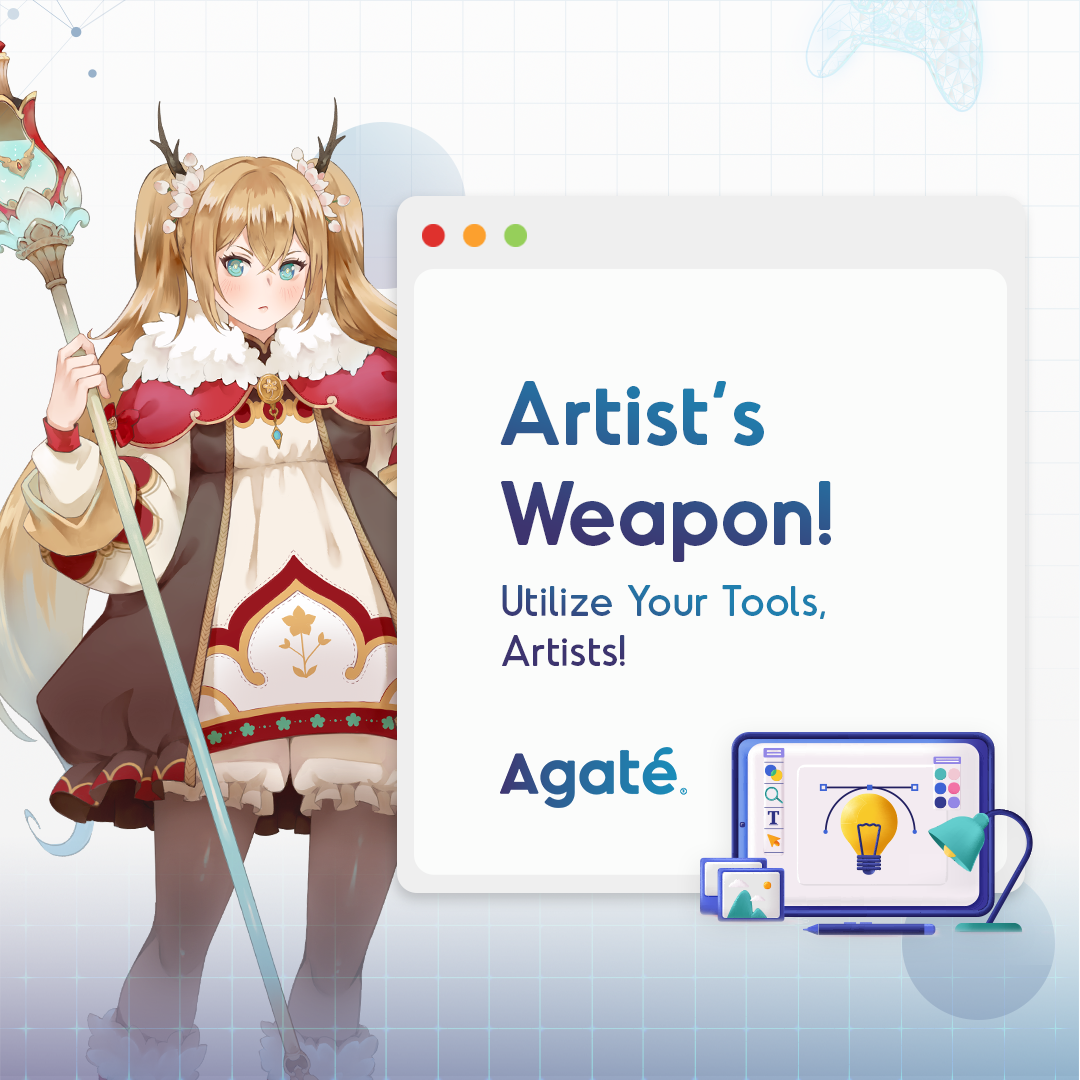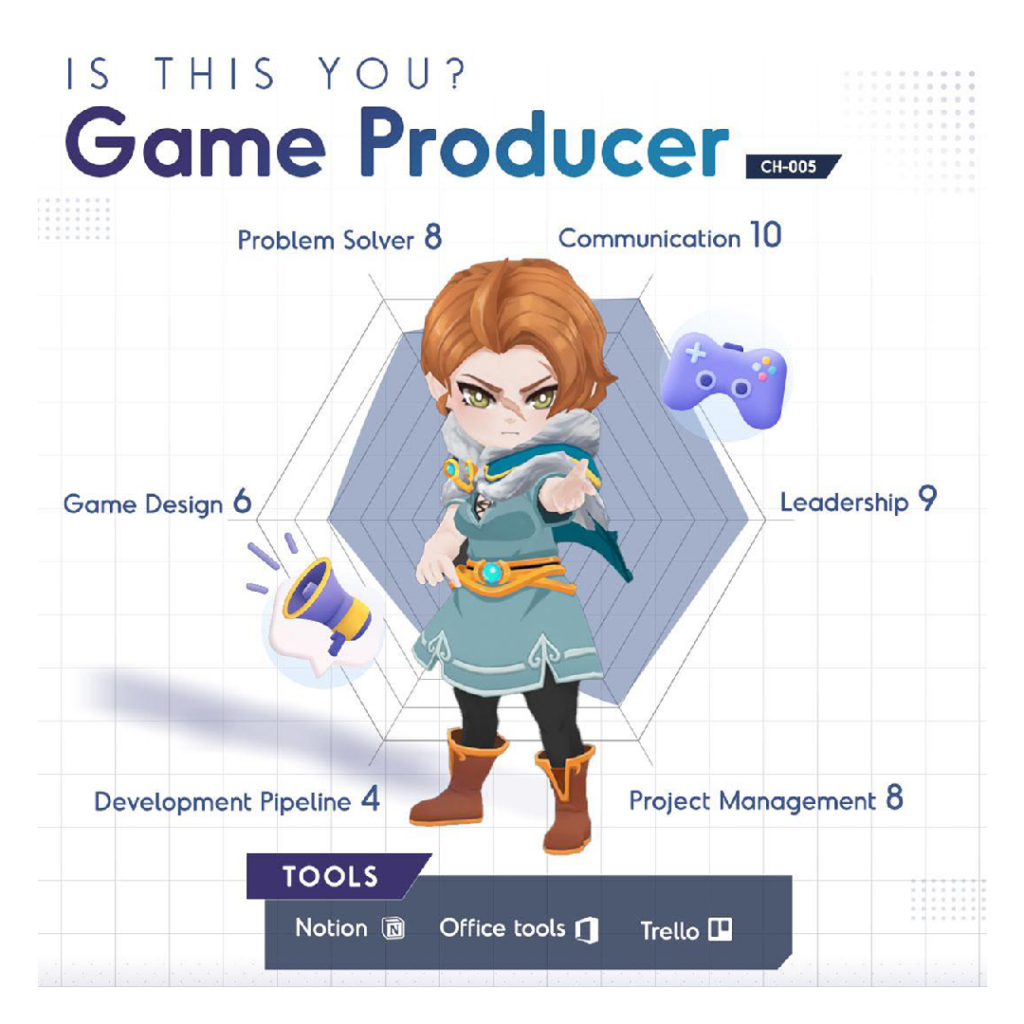Artist’s Weapon: Skills and Tools To Master

The gaming industry, a continually evolving creative field, provides many opportunities for artists to follow their passion and build successful careers. Since the gaming industry is constantly expanding, artists need to keep up with the rapidly evolving skills and tools used in the industry. What Skill Does An Artist Needs? An artist is responsible for a visual aesthetic that includes color, composition, value, shape, textures, anatomy, and perspective. With the variety of elements that Artists need to create, what are the essential skills required for an Artist? LeadershipAn artist is responsible for completing a project, which may be multiple, one at a time, with numerous people in a team. Leadership skills must bring out the finest qualities in team members and inspire them to collaborate to accomplish a common goal. CommunicationAs communication goes both ways, an artist must be able to speak their mind and listen. Artists must translate their vision into words and communicate it, not just visuals. TeamworkTeamwork skills are needed because, in game development, an artist will work closely with the team to achieve the goals set at the beginning. Problem-solvingArtists will encounter various obstacles during their work. It will only worsen if the issue is not handled by the deadline. That’s why an artist needs to be a problem solver. CreativityParticularly in game development, an artist must be a creative individual capable of producing innovative ideas for their artwork. Time managementArtists need to use time wisely and productively. They also need to manage their time to focus and control the time to complete their tasks. Good time management can increase work productivity. Attention to detailArtists must be able to carry out and finish a task while demonstrating thoughtful thought for all aspects concerned, no matter how minor. This entails efficiently managing time and resources while monitoring and verifying work or information. What Tools Do Artists Utilize? Raster Illustration (Adobe Photoshop)Rasterization is a technique with a pixel-by-pixel system. It allows the creation of complex shapes and color blendings, such as creating concept art or 3D texturing. (Vector Illustration) Adobe IllustratorVector is an illustration technique with a data calculation system that is unaffected by the number of pixels, such as creating UI assets. UI/UX (Figma and Adobe XD)These tools are used to design User Interfaces in the game, such as buttons, pages, head-up displays, and the outcome when it is run by the player/user. 3D Modelling (Zbrush and Blender)3D Modelling involves creating three-dimensional points or vertices by vertex objects in 3D space. Zbrush and Blender are famous for making 3D objects because they are easy to use and have a broad scope for making games and cinematic assets. Rigging (Blender)Rigging is like giving a “bone” to an object/character so it is ready to transform as animation. 3D Animation (Blender, Rokoko Studio)Animation is the phase where the rigged object is moved and posed keyframe by keyframe into a sequence that matches the desired movement in the game. Such as idle, walk, run, jump, attack, etc. Texturing (Blender, Adobe Photoshop, Substance Painter, Substance Designer Texturing)Texturing gives color to 3D objects; the basic principle is similar to raster illustrations. Game Engine (Unity Engine, Unreal Engine)The final phase is to transfer the finished asset into the game engine to develop the game itself. Again, a specialist game artist must master the game engine’s features and tools to set every visual asset properly. If you think you can utilize these tools to your advantage and more, head down below and show us what you’ve got! Vacancy ON ART DEPARTMENT Position Department Division Contract Type 3D Artist Art Gamification Contract Type : Temporary Details 2D Artist Art Gamification Contract Type : Temporary Details Technical Artist Art Art Service Contract Type : Temporary Details Load More
Go Deeper As a Game Producer: Skills and Tools You Needed

In the past few articles (see our Recruitment Tips: Excel Your Game Producer Application or Being a Game Producer: Perks and Challenges), we’ve talked about Game Producers and the importance of this role. To ensure that our games are released on time, we need someone to manage the team and keep track of the development process—and that’s where Game Producers came in! Game Producers, the all-seeing eye of development, are responsible for overseeing everything in the course of action. They manage production schedules and plans for the team and ensure those are followed and adhered to. In addition, producers let everyone on the team know about the upcoming steps and goals they’re trying to reach. From the development and production stages, Game Producers must also guide their teams to maintain a shared design, artistic, and technical vision. Game Producers are strategic thinkers. With a deep understanding of the process, they can devise long-term and backup plans if something doesn’t work out—making sure no team loses direction. With their pragmatic and tactical leadership, they manage the team to be successfully released the games for gamers all over the world. From knowing the what, when, and who and coming up with solutions, Game Producers made it happen. What are essential skills for a Game Producer? Leadership Skill A Game Producer needs to act as a team player that will lead a team of talented programmers, artists, designers, and QA to reach a common goal. So, leadership skill is the essential skill a game producer should have. Project Management Skill To be involved in game development from end to end, a Game Producer could keep track of everything in the project: the schedules, the stakeholders, the objectives, and so on. A Game Producer should be familiar with project management methods and tools. Communication Skill Being an expert communicator is a must skill that Game Producers should have. A Game Producer must be great at listening, giving feedback, and preventing ambiguity within the team’s scope and external stakeholders. Problem Solving Skill Things never go 100% as planned. Therefore, problem-solving plays a massive part in the game producer’s role. A Game Producer must be able to identify, plan, strategize, and develop creative and effective solutions for every situation encountered. Game Design, Art, and Programming Knowledge A game Producer is not practically involved in the game design process from scratch or the game programming and artwork. Even so, a Game Producer needs to be knowledgeable about the game design and development pipeline. So with a little bit of understanding of everything, Game Producers need to understand the game design and development pipeline to support and direct their team. What Tools Do Game Producers Utilize? Game Producers need tools to help them plan and monitor their team activities to support their day-to-day work. They use three main tools: Notion, Office Tools, and Trello. Most routine management and database tasks will be more swiftly and efficiently with the help of these tools. In addition, you can use different features on the app simultaneously to support each other. If you think you have what it takes, head up to our vacant Game Producers role and shoot your shot! Vacancy On Production Departement Position Department Division Contract Type Public Relations Marketing, Sales and Operations Support Contract Type : Temporary Details Lead 3D Artist Art Art Service Contract Type : Temporary Details Load More

